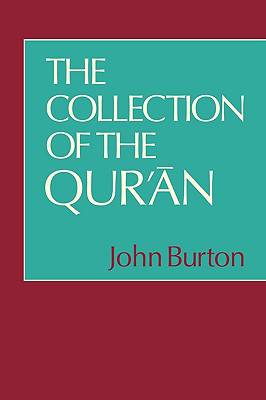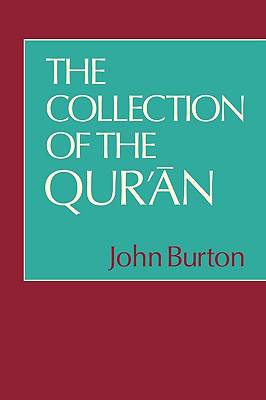
Bedankt voor het vertrouwen het afgelopen jaar! Om jou te bedanken bieden we GRATIS verzending (in België) aan op alles gedurende de hele maand januari.
- Afhalen na 1 uur in een winkel met voorraad
- In januari gratis thuislevering in België
- Ruim aanbod met 7 miljoen producten
Bedankt voor het vertrouwen het afgelopen jaar! Om jou te bedanken bieden we GRATIS verzending (in België) aan op alles gedurende de hele maand januari.
- Afhalen na 1 uur in een winkel met voorraad
- In januari gratis thuislevering in België
- Ruim aanbod met 7 miljoen producten
Zoeken
Omschrijving
The most surprising feature of the Muslim traditions on the collection of the Qur'ān is their denial of any role in the process to Muhammad himself. The merit of assembling and preserving the record of the momentous divine revelations has been variously ascribed to some half dozen of the Prophet's associates or Companions, and these ascriptions have usually been treated as hopelessly conflicting. Dr Burton argues that they are in perfect agreement. Their sole function was the deliberate exclusion of Mohammed. Dr Burton demonstrates in his analysis of the original Muslim sources a series of subtle distinctions, the most significant being that between the Qur'ān document and source. This 1977 analysis of early Muslim traditions challenges existing scholarly interpretations, and Dr Burton argues his case with a wealth of detail. It is a book which all students of Islam will find required reading.
Specificaties
Betrokkenen
- Auteur(s):
- Uitgeverij:
Inhoud
- Aantal bladzijden:
- 284
- Taal:
- Engels
Eigenschappen
- Productcode (EAN):
- 9780521296526
- Verschijningsdatum:
- 1/11/1979
- Uitvoering:
- Paperback
- Formaat:
- Trade paperback (VS)
- Afmetingen:
- 152 mm x 229 mm
- Gewicht:
- 417 g

Alleen bij Standaard Boekhandel
+ 129 punten op je klantenkaart van Standaard Boekhandel
Beoordelingen
We publiceren alleen reviews die voldoen aan de voorwaarden voor reviews. Bekijk onze voorwaarden voor reviews.









